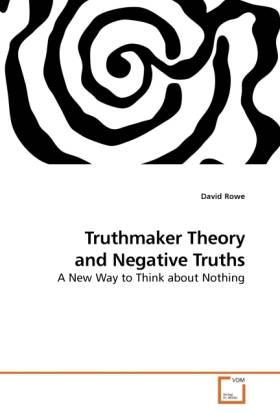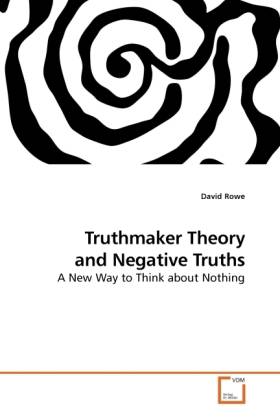
Bedankt voor het vertrouwen het afgelopen jaar! Om jou te bedanken bieden we GRATIS verzending (in België) aan op alles gedurende de hele maand januari.
- Afhalen na 1 uur in een winkel met voorraad
- In januari gratis thuislevering in België
- Ruim aanbod met 7 miljoen producten
Bedankt voor het vertrouwen het afgelopen jaar! Om jou te bedanken bieden we GRATIS verzending (in België) aan op alles gedurende de hele maand januari.
- Afhalen na 1 uur in een winkel met voorraad
- In januari gratis thuislevering in België
- Ruim aanbod met 7 miljoen producten
Zoeken
Truthmaker Theory and Negative Truths
A New Way to Think about Nothing
David Rowe
Paperback | Engels
€ 58,45
+ 116 punten
Omschrijving
Most contemporary analytic philosophers would agree that the correspondence theory of truth is dead and buried. But the realist inclination that there must be some interesting relation between truth and parts of reality remains. This inclination has inspired philosophers to look elsewhere for a robust theory of truth. What has sprung from this inspiration has come under the rubric of truthmaker theory; the idea that in order for a truth to be true there must be a truthmaker for that truth. With this in mind, I pursue the question of what the motivations for such a theory could be. I argue that these motivations arise from considerations about ontology, or what there is, rather than truth per se. I then rehash the problem of negative truths in light of this new reading of the theory. This work puts a unique spin on the purpose of truthmaker theory, which provides a new way to view the problems that beset the theory. This work should be of interest to philosophers who are interested in metaphysics and are willing to work through the problems raised in the text.
Specificaties
Betrokkenen
- Auteur(s):
- Uitgeverij:
Inhoud
- Aantal bladzijden:
- 128
- Taal:
- Engels
Eigenschappen
- Productcode (EAN):
- 9783639162721
- Uitvoering:
- Paperback
- Afmetingen:
- 150 mm x 220 mm
- Gewicht:
- 187 g

Alleen bij Standaard Boekhandel
+ 116 punten op je klantenkaart van Standaard Boekhandel
Beoordelingen
We publiceren alleen reviews die voldoen aan de voorwaarden voor reviews. Bekijk onze voorwaarden voor reviews.









